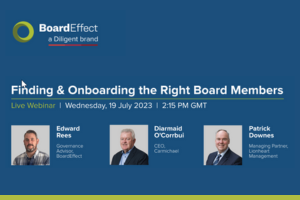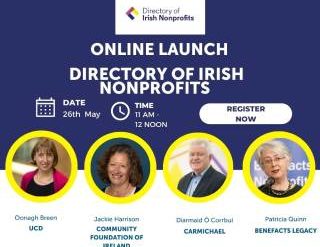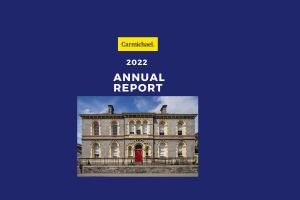Target Audience
Managers and staff working in accounts, perhaps for the first time – anyone responsible for maintaining the accounting records. It will be of most benefit to small charities.
Outline
Maintaining a charity’s accounting records, or books is an obligation and a responsibility. This workshop is intended to equip managers and accounts staff with an understanding of book-keeping and accounting issues that are relevant to their day to day operations so that the accounting records can be kept up to date and provide meaningful information. The workshop will include practical examples and short exercises using Microsoft Excel programme. To ensure the training is as interactive and participatory as possible, we limit the number of participants to 10. Laptops will be provided.
The main areas covered will be:
- Importance of bookkeeping
- Relevant documentation and books of account
- Setting up bookkeeping system relevant to own organisation and SORP
- Maintaining accounting records and processing transactions
- Checking everything balances including how to do a bank reconciliation
- Profit and loss account and balance sheet
- VAT Compensation Scheme for Charities.
Methodology
In-person training, in Carmichael Centre, Dublin 7.
Target Audience
For those who want to learn about what is required for your organisation to safeguard adults that you support both within your organisation and your community. By learning about safeguarding and how to develop a safeguarding culture you and your community will be better equipped to support adults who may be at risk of abuse.
Outline
- Find out about Safeguarding and your obligations to it.
- Learn about the 6 Principles of Safeguarding.
- Discover how to identify adults in your organisation or community who may be at risk.
- Learn about recognising the signs of abuse.
- Learn how to Report Concerns and Respond to Allegations.
- Introduction to the newly launched “Assisted Decision Making (Capacity) Act 2015”.
- How to develop a Safeguarding Culture.
This course aims to enable to learner to understand:
- The principles of safeguarding.
- The indicators of abuse.
- The roles, responsibilities, and actions a person should take in safeguarding adults at risk of abuse.
- Learn about newly introduced Legislation.
Methodology
Delivered virtually via Zoom.
Target Audience
Company Secretaries or anyone thinking of becoming a Company Secretary.
Outline
Learn about the practical and legal responsibilities and liabilities of the Company Secretary of a Company Limited by Guarantee (CLG).
Topics covered during this workshop include:
- The Companies Act 2014 – implications for new and existing CLG
- The governing instrument – company constitution
- Legal duties of a Company Secretary
- Administrative duties assigned by the Board to a Company Secretary
- Appointing a Company Secretary
- Administrative obligations of a company to the CRO
- Compiling documentation for board meetings and AGM
- Role of Company Secretary as a trusted Board advisor
Methodology
Delivered virtually via Zoom.
Target Audience
Chairpersons of non-profit organisations or anyone thinking of becoming a Chairperson.
Outline
The online workshop will examine the role and responsibilities of the Chairperson of a non-profit organisation.
Topics covered during this workshop include:
• The role of the Chairperson in relation to the governance and leadership of the organisation
• Boundaries and critical relationships
• Developing a culture of transparency, accountability and integrity
• Managing board meetings effectively
• Ensuring suitable board renewal takes place
• Policy to practice – key areas for Chairs
• Board effectiveness
Methodology
Delivered virtually via Zoom.
Target Audience
Those appointed to the role of Designated Liaison Person (DLP) within their organisation.
Outline
This online training session aims to provide an understanding of the role and responsibilities of a Designated Liaison Person (DLP) and the organisational responsibilities in relation to child safeguarding and protection.
Methodology
Delivered virtually via Zoom.
Target Audience
This session is designed for those who are new to writing grant applications, or those who would like feedback on applications they are currently completing.
Outline
How do we make successful grant applications? This workshop provides an opportunity to identify the challenges, the most common mistakes applicants make and also what errors causes application disqualifications. Participants should come away with a better understanding of appropriate language & wording to help better make the case for their grant application.
Methodology
This session will be in Carmichael Centre, Dublin 7.
Target Audience
Anyone involved in preparing and approving budgets and managing an organisation’s resources.
Prerequisites
Participants should be comfortable with Microsoft Excel basics. Laptops will be provided by Carmichael for the training session.
Outline
Community, Voluntary and Charitable Organisations have a responsibility to manage their money and other resources properly. Budgeting is an essential management tool that helps such organisations manage resources effectively. This workshop is for anyone involved in the process of budgeting and managing an organisation’s resources. The workshop will include practical examples and short exercises using MS Excel. To ensure the training is as interactive and participatory as possible, we limit the number of participants to 10. Laptops will be provided.
The main areas covered will be:
- What a budget is and the typical content
- The budgeting process and how it fits into the charity’s annual and strategic planning processes
- Benefits (and potential downsides) of budgeting
- Tips for preparing a budget
- Measuring actual outcomes against budgets
- Importance of review and update
- The workshop will encourage participants to relate the principles to their own charity.
Methodology
In-person training, in Carmichael Centre, Dublin 7.
Target Audience
Anyone needing to better understand the implications of the Companies Act 2014 & Charities Act 2009 for organisations in the not-for-profit sector.
Outline
This online workshop explores how the Companies Act 2014 impacts on Charities and Not-for Profit Companies that are Limited by Guarantee, the requirements of the Charities Act 2009, the role of members, the duties and responsibilities of Directors and Other Officers and the preparation of Financial Statements under Companies Act 2014.
Methodology
Delivered virtually via Zoom.
Target Audience
Designed for staff and volunteers who are responsible for online communication in their organisations.
Outline
- Introduction to Social Media (15 mins)
- Overview of Key Social Media Platforms (30 mins)
- Facebook, Twitter, Instagram, LinkedIn, YouTube & TikTok
- Developing a Social Media Strategy (30 mins)
- Content Creation and Storytelling (20 mins)
- Content that resonates with your mission and audience
- Visual elements, use of images, and videos
- Community Engagement and Growth (20 mins)
- Tools and Analytics (20 mins)
- Case Studies and Best Practices (25 mins)
- Practical Exercise (15 mins)
- Groups to create a mini social media campaign plan (10 mins)
- Presenting and feedback (5 mins)
- Q&A and Conclusion (15 mins)
Methodology
Delivered via Zoom.
Target Audience
Staff Members of charities and not-for-profits.
Outline
This interactive workshop will provide the participant with an easy-to-understand background on the GDPR as well as a way to identify data breaches and looking at measures on how to appropriately protect personal data, whether it’s on paper or held electronically.
1. Introduction:
• What is data protection and why is it important?
• What is the GDPR and how does it apply to charities and not-for-profits?
• The key principles of the GDPR.
• The benefits of GDPR compliance.
2. Data subject rights
3. Data breaches:
• What is a data breach?
• How to respond to one.
• Some examples of real-world data breaches.
4. Measures to protect personal data
Methodology
Delivered virtually via Google Meet. A copy of the slides will be provided as well as a link to download more detailed guidance on data protection.




